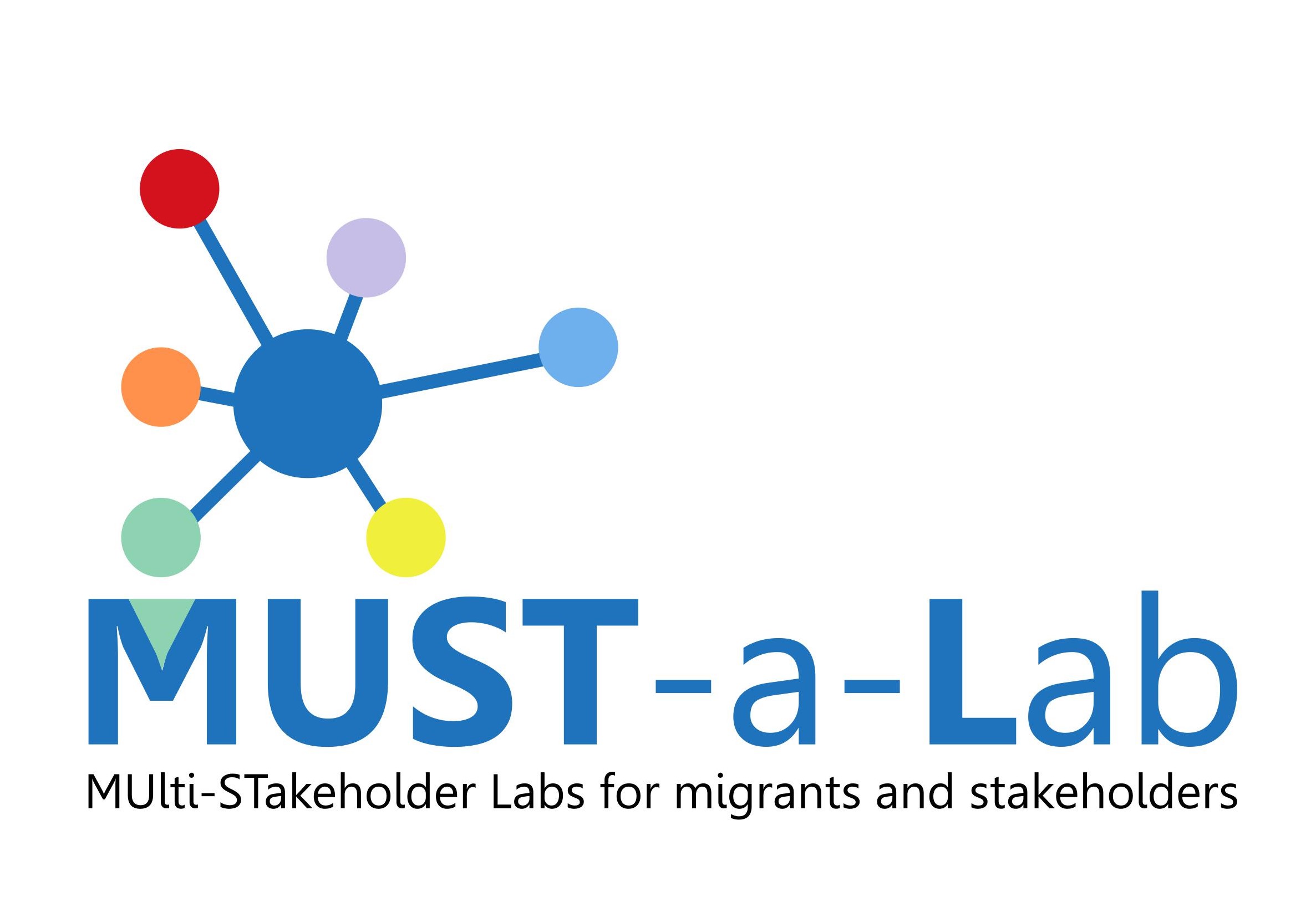
THE PARTNERSHIP
The project “MUlti – STakeholder Lab for migrants and stakeholders – MUST-a-Lab” was funded by the Asylum, Migration and Inclusion Fund of the European Commission. The project foresees the participation of 6 different municipalities: the city of Mechelen in Belgium (head of the project), the city of Vienna in Austria, the Municipality of Livadia in Greece, the Ayuntamiento de Fuenlabrada in Spain, Grenoble Alpes Métropole in France and the city of Modena in Italy. The Karel de Grote Hogeschool (Belgium), the University of Modena and Reggio-Emilia (Italy), the International Institute of Humanitarian Law (Italy) and the Forum des Regions Europeennes pour la Recherche en Education et Formation (France) are also part of the consortium as support for the methodology development and implementation.
Migration policy represents a national and European responsibility, but integration happens at the local level. It is in the neighborhoods, schools, and workplaces that people integrate in communities. In this sense, local authorities play a key role in integrating newcomers and empowering them to contribute to their new communities. However, due to a lack of coordination among stakeholders across the different sectors of labor, health, housing and education, local integration strategies show weaknesses.
The MUST-a-Lab project aims at bringing together stakeholders and migrants in order to innovate strategies for effective integration at local level, building more resilient communities, through the establishment of local Policy Labs.
Each PL focused on a specific topic in one of two areas the consortium selected from the European “Action plan on Integration and Inclusion 2021-2027” and identified as a priority:
1. Education, lifelong learning, citizenship education, and professionalisation;
2. Care, work-life balance and gender equality.
The topics were chosen according to the local needs, subject of a continuous brainstorming with the partner cities since this very projecting phase.
The efforts of the consortium are also driven to the dissemination of the Policy Lab methodology, so that other municipalities and communities can install them to improve their integration strategies involving all relevant stakeholders.
THE PROJECT
MUST-a-Lab started in January 2022 and will last until December 2024.
MUST-a-Lab proposes a systemic and long-term involvement of migrants and asylum-seekers in cities and communities through installing Policy Labs (PLs) in which existing local integration strategies are discussed and improved.
These labs bring together different types of local stakeholders: official stakeholders normally involved in local policies and “grassroots” stakeholders who are close to the final implementation of policies, as well as established migrant stakeholders. Participated policies in the field of migration means to mobilize different stakeholders and to activate a fruitful exchange at different stages of development in the fields of social inclusion, education, employment. For this reason, Policy Labs enables the different stakeholders involved to discuss, review and improve existing integration local strategies through the input of all participants.
The measures discussed in each Policy Lab are focused on a topic previously chosen according to the local needs in terms of migrant and asylum seekers communities integration.
MUST-a-Lab OBJECTIVES
1) Making the participatory process structural and sustainable at the local level by establishing a sustainable framework to continue a participatory process of strategy review, renewal and maintenance involving local administrators, relevant stakeholder’s groups and migrants/asylum seekers having developed mutual familiarity and cooperation habit;
2) Creating a replicable good practice/methodology. The whole process of stakeholders’ mapping, enabling of grassroots stakeholders, dialogic methods, systemic approach to the analysis of policy challenges and evaluation will lead to its replication/adaptation in other local contexts, neighbours of the partner cities or linked through international networks;
3) Foster transnational cooperation among cities and stakeholders: not only local administrators will have the opportunity to meet and collaborate with their peers in other countries, but also the stakeholders’ representatives;
4) Improving socio-economic inclusion by co-designing policies and implementing them: the interaction of administrators, migrants and grassroots stakeholders will establish new flows of dialogue and more comprehensive results through co-creation of innovative and cross-sectoral solutions.
